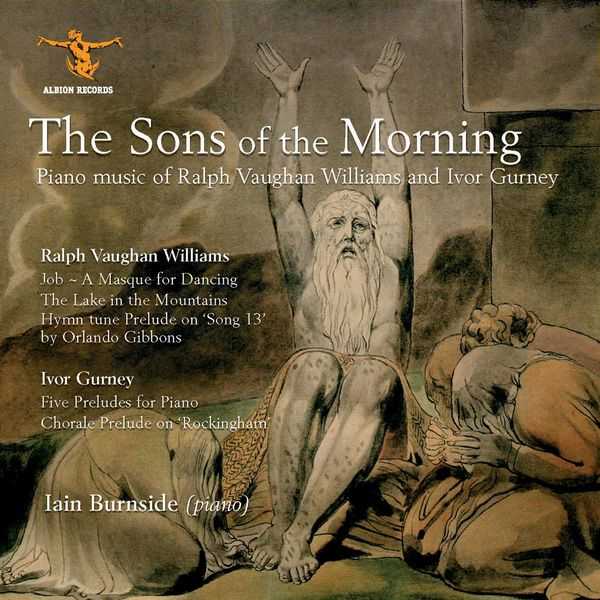

Composer: Ivor Bertie Gurney, Ralph Vaughan Williams
Performer: Iain Burnside
Format: FLAC (tracks)
Label: Albion
Catalogue: ALBCD015
Release: 2012
Size: 468 MB
Recovery: +3%
Scan: yes
Gurney: 5 Préludes
01. No. 1 in F-Sharp Major
02. No. 2 in A Minor
03. No. 3 in D-Flat Major
04. No. 4 in D-Sharp Minor
05. No. 5 in D Major
06. Gurney: Choral Prelude on Rockingham (arr. S. Banfield for piano)
07. Vaughan Williams: The Lake in the Mountains
08. Vaughan Williams: Hymn Tune Prelude on Song 13 by Orlando Gibbons
Vaughan Williams: Job “A Masque for Dancing” (Arr. V. Lasker for Piano)
09. Scene 1: Introduction
10. Scene 1: Pastoral Dance
11. Scene 1: Satan’s appeal to God
12. Scene 1: Saraband of the Sons of God
13. Scene 1: Satan’s Dance of Triumph
14. Scene 3: Minuet of the sons of Job and their wives
15. Scene 4: Job’s dream
16. Scene 4: Dance of plague; pestilence; famine and battle
17. Scene 5: Dance of the three messengers
18. Scene 5: Job blesses God
19. Scene 6: Dance of Job’s comforters; Job’s curse; a vision of Satan
20. Scene 7: Elihu’s dance of youth and beauty
21. Scene 7: Pavane of the Sons of the Morning
22. Scene 8: Galliard of the Sons of the Morning
23. Scene 8: Altar dance and heavenly pavane
24. Scene 9: Epilogue
Ivor Gurney’s The Five Preludes for piano date from the second half of 1919 written during a period of remarkable and unexpected creativity from the 29 year old composer and published war poet, with over 40 songs composed and 80 poems written. Gurney was taught by Ralph Vaughan Williams in 1919 at the RCM. In 1922 ill health got the better of Gurney and he was sent to the City of London Mental Hospital where he remained until his death in 1937.
Ralph Vaughan Williams was not renowned for his piano playing and as such wrote few works for the piano. The Lake in the Mountains was his last piano work and was composed for Phyllis Sellick in 1947. This piano version of Job A Masque for Dancing was arranged for piano by Vally Lasker, made in the summer of 1930 to support the dancers’ rehearsals for a production. The piano arrangement was considered significant enough to be published by Oxford University Press in 1931.
Award winning piano accompanist, Iain Burnside makes his first full solo recording with this disc of rare repertoire.



